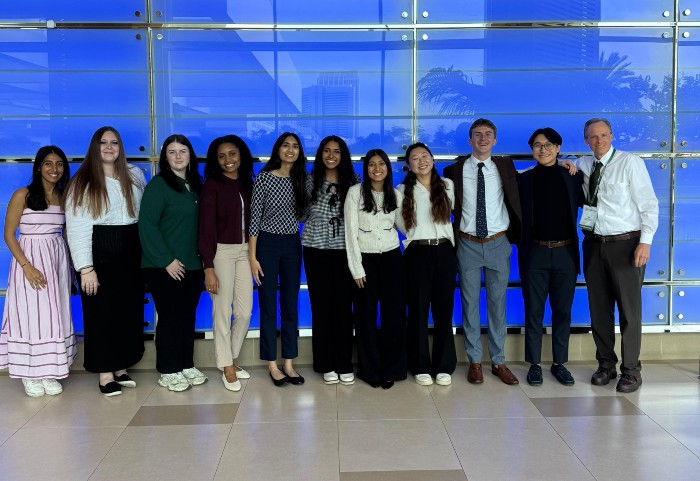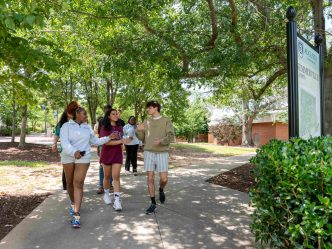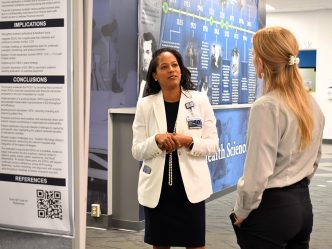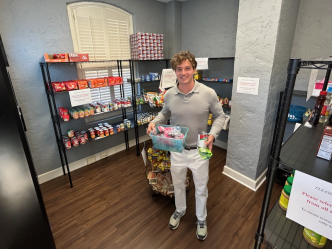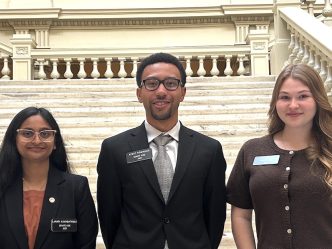Madden Jones, a fourth-year cell and molecular biology student in Augusta University’s College of Science and Mathematics, was awarded Best Poster in the Lab Sciences at the 2025 National Collegiate Honors Conference held Nov. 6-9, in San Diego, California.
Jones, whose project was titled “Sex Differences in Cognition Post-Treatment of Emotional Trauma,” was among a group of 10 students the AU Honors Program sent to this year’s NCHC, a conference AU has attended since 2015. Eight students, including Jones, presented individual poster presentations, and two participated in panel presentations on various topics:
- Sydney Brandau, an anthropology major in the Katherine Reese Pamplin College of Arts, Humanities, and Social Sciences, “Southern Controversy and the Irish Traveller Population in North Augusta, South Carolina”
- Lia Carter, a kinesiology student in the College of Education and Human Development, “Exploring the Effects of Sport Uniforms on Body Image Perspectives of Female-Identifying Collegiate Athletes”
- An Nhien Do, a cell and molecular biology student in the College of Science and Mathematics, “Mitochondrial Turnover in Endothelial Cells are impacted by Hypoxic conditions”
- Zeal Dobariya, a biology major, “Investigating the Role of Branched-Chain Amino Acid Catabolism in Cisplatin-Induced Ferroptosis and Chronic Kidney Disease”
- Hanna Patel, a cell and molecular biology student in the College of Science and Mathematics: “The effects of exogenous serine on the healthspan of Drosophila melanogaster”
- Krisha Patel, a business administration major in the James M. Hull College of Business, “Media Analysis of Two Wrongful Convictions: The Exonerated Five and The West Memphis Three”
- Amelia Newell, a cell and molecular biology student, “Retinopathy of Prematurity: Exploring the Role of HCAR2”
- Riya Patel, a medical physiology master’s student, “Cultivating Community: A Recipe for Belonging Through Student Leadership in Honors”
- Lilly Williamson, a communications student in the Pamplin College, “The Best Practices: An Analysis of Faculty Recruitment, Retention, and Effort Allocation in Undergraduate Honors Programs and Colleges”
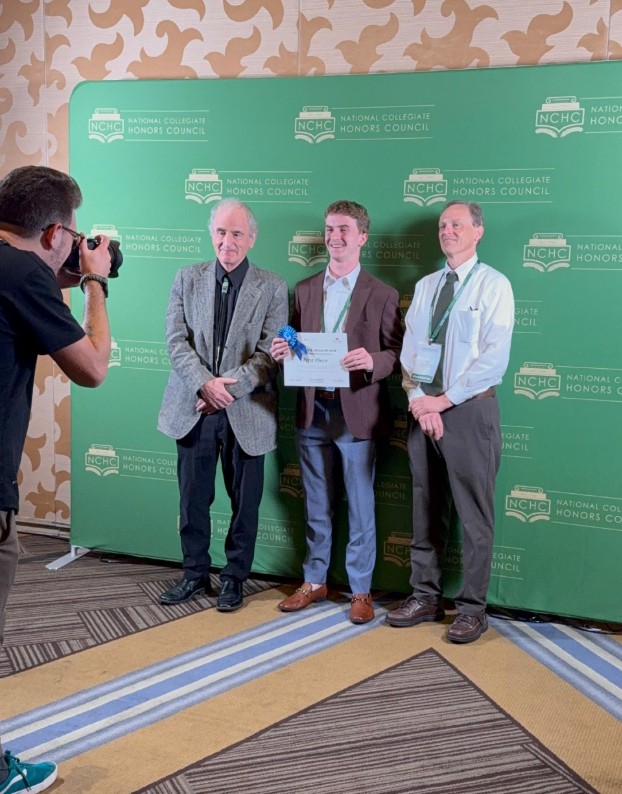
Jones said he was nervous at first about the conference, but the other attendees were so welcoming that his nerves wore off quickly upon arrival. He was excited to have the opportunity to go somewhere new that he had never been, meet new people and share more about a project he’s very passionate about.
A future medical student at the Medical College of Georgia at Augusta University, Jones has presented at three other conferences prior to this experience but said this was the biggest conference he’s presented at. He was surprised at the interest in his project among those in attendance.
“This was so thrilling for me that so many people were curious about the project, and I was so eager to tell them as much as I could. I didn’t think I had a shot at placing after the session since I had seen a lot of other intelligent students doing some incredible work,” Jones said.
The conversations he had with judges and students in attendance were interesting and offered some different directions for his research that he had not thought about.
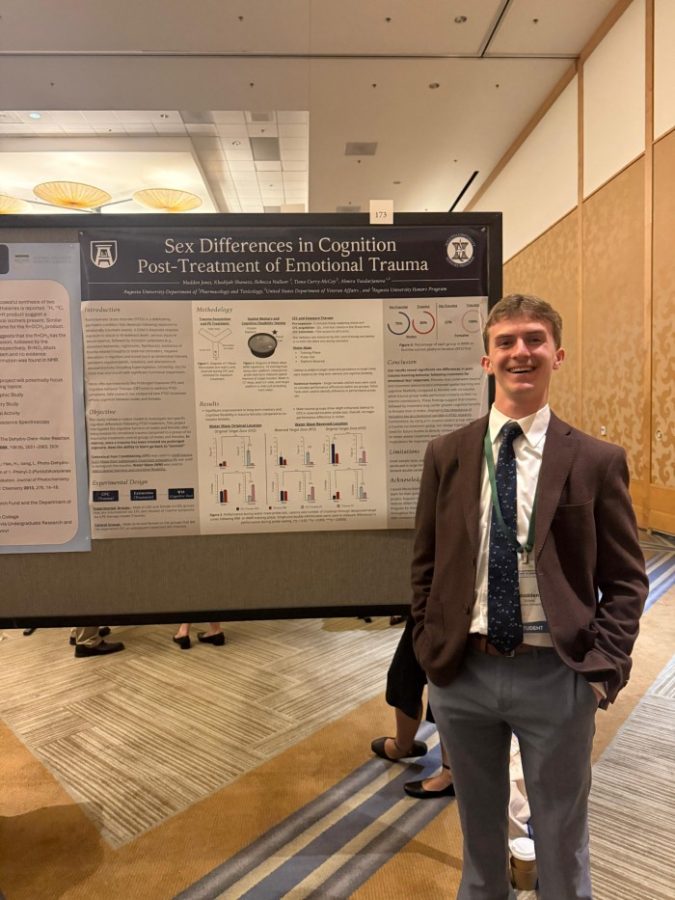
“I think my poster was well received by the judges because of its ability to be appreciated without needing lots of prior knowledge to understand,” Jones said. “A lot of research – especially in the natural sciences – is very niche and needs a stronger background understanding to comprehend what’s going on. The work we do is complex, but I think the behavior and the overlaying message that males and females are not responding equally after treatment is something everyone can appreciate.”
He advises other students who are looking to get into research to just do it. Jones added there’s no correct way to get involved, and you don’t need to cure cancer or end world hunger to do research; it’s all about learning something you’re deeply interested in to fill a gap in knowledge.
 Augusta University
Augusta University
